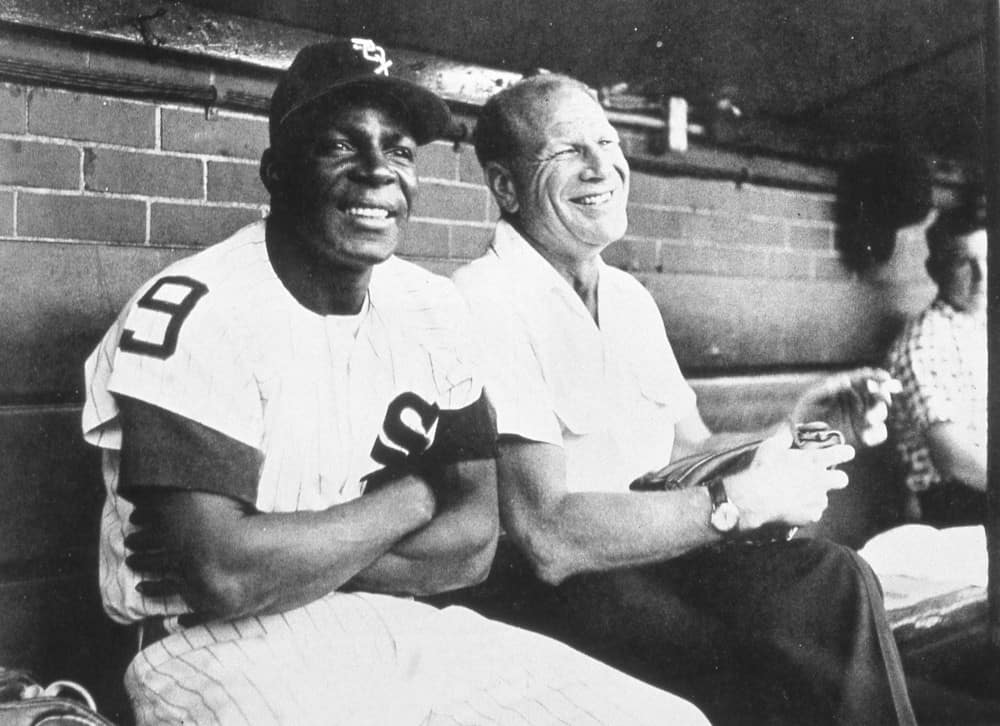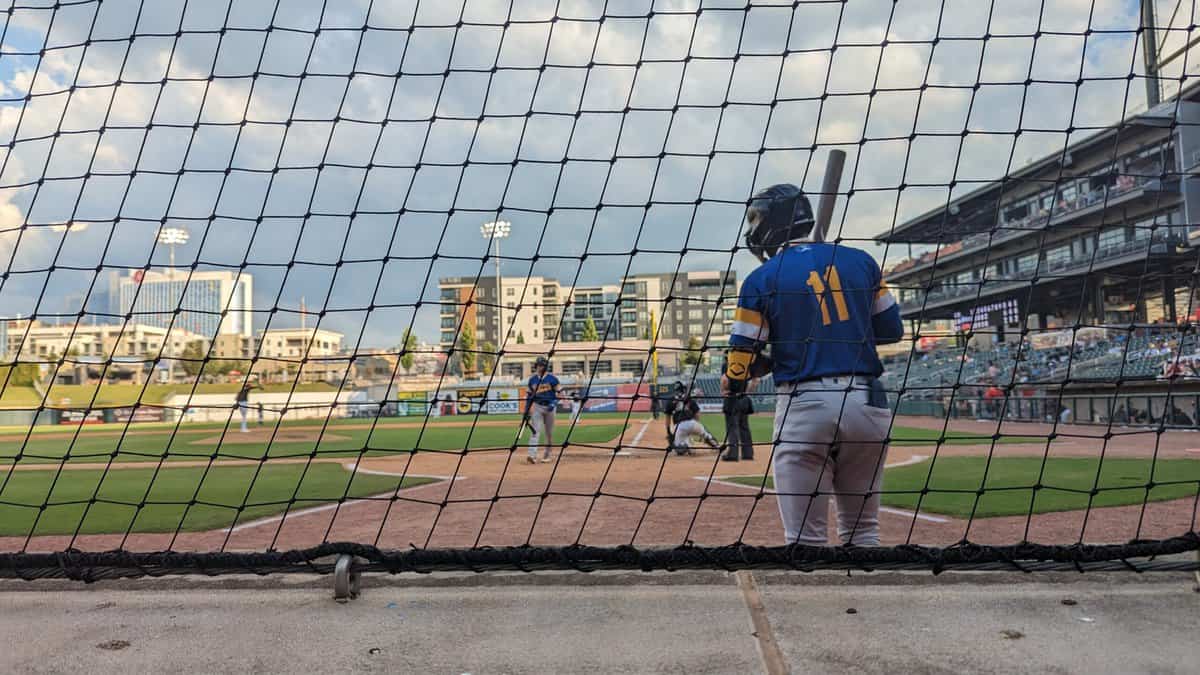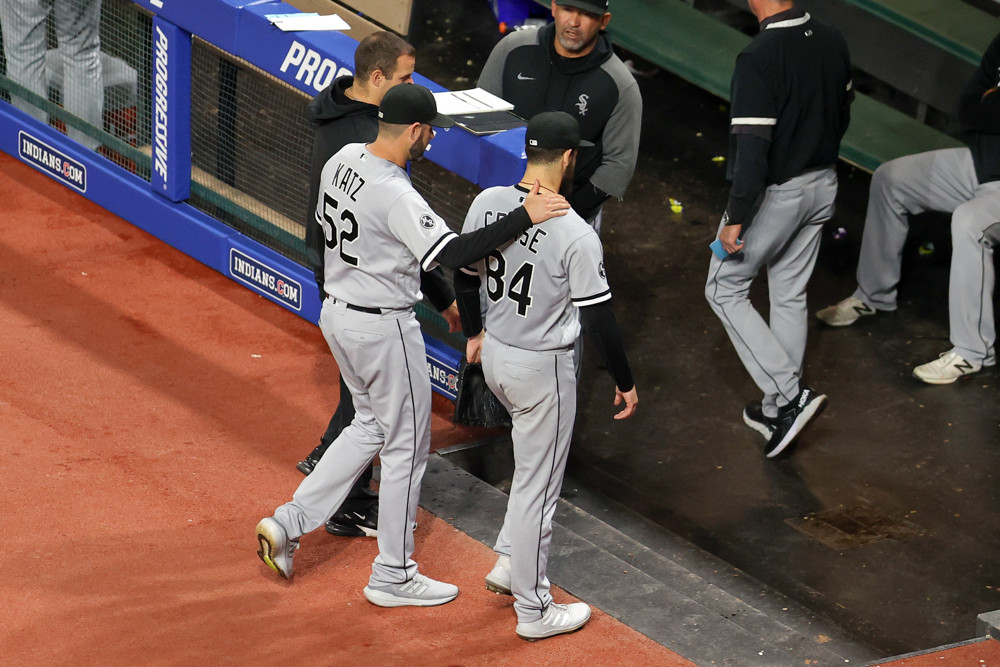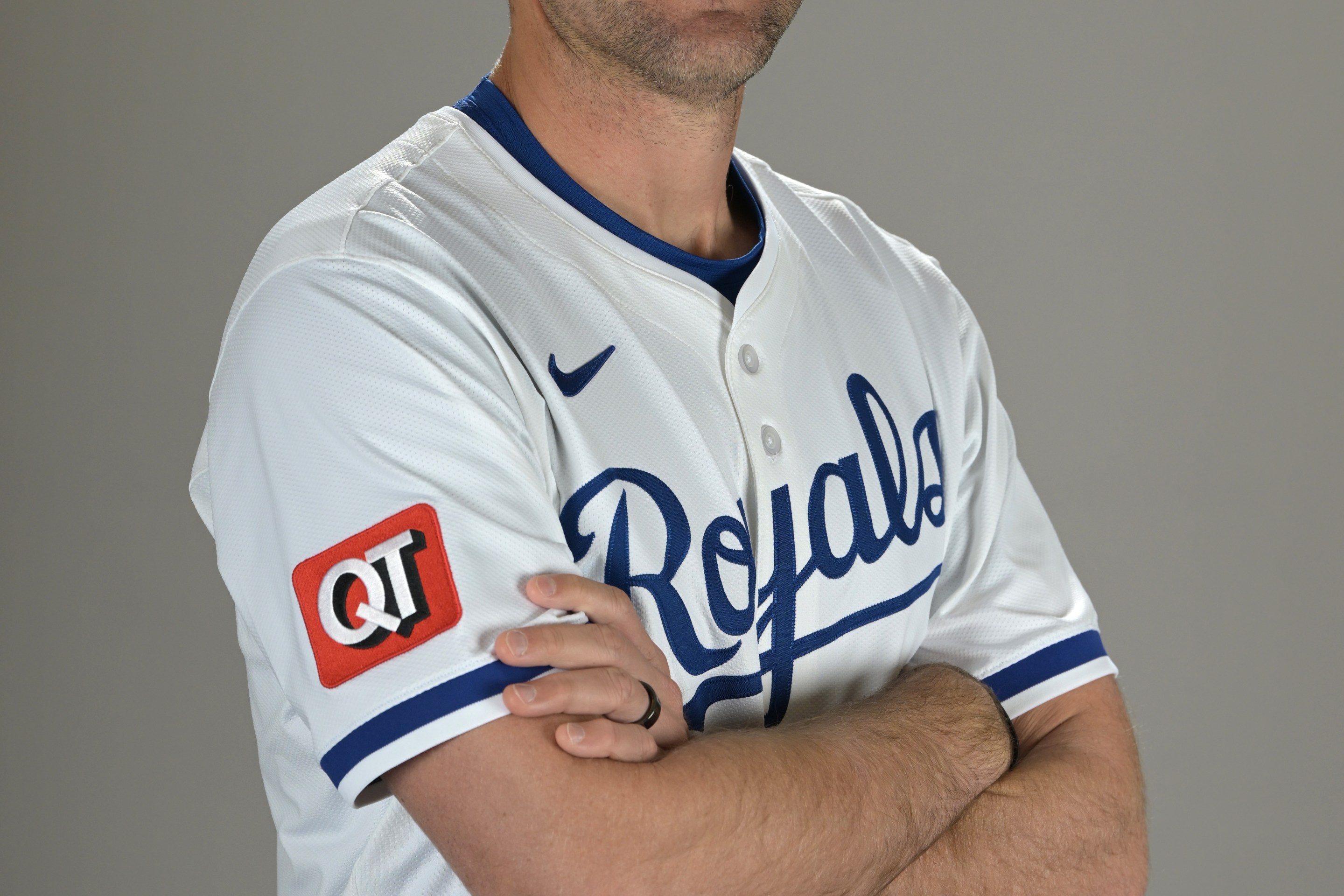Back on South Side Sox in June of 2016, Larry wrote an open letter to Jerry Reinsdorf saying it was time for him to scrap the White Sox front office due to the horrendous track record it accumulated since Kenny Williams moved upstairs and yielded the general manager's seat to Rick Hahn. Larry presented a tabulation of all of Hahn's moves, and Hahn came out with a measly 15 Wins Above Replacement for all his struggles with trades and free agency. Worse yet, Jose Abreu and Adam Eaton accounted for 17.4 of those wins, which means everybody else was cumulatively underwater.
Obviously, Reinsdorf has not made such changes. He did opt to pull the plug on the cost-controlled core and rebuild for a second time after that season, but he kept the architects of the first rebuild in place. The continuity keeps Larry's missive relevant years later, especially since they haven't yet threatened a winning record.
The White Sox's historical inability to acquire productive MLB players at digestible costs is why I've been bearish about their chances of succeeding with this rebuild, especially since a rough year on the farm wiped out their margin for error solving problems from within, or using extra prospects for trades.
With free agency being the most likely avenue for upgrading the 2020 White Sox, I wanted to revisit the topic with a specific focus on the open market, because there's a lot of ugly history Hahn has to overcome.
Below is a year-to-year chart of the White Sox's forays into free agency under Hahn. A few notes:
No. 1: I didn't include most minor-league free agent signings, because while some have worked out really well, most worked out as well as one might expect, if they even appeared in the majors at all. Instead of wrestling with Zach Putnam vs. Bruce Rondon and the like, I only included a few minor-league signings where the Sox penciled them in for a 25-man roster spot assuming they survived spring training.
No. 2: I also set aside the retention of a few incumbents, whether it was due to the minimal guarantee, an enormous legacy, or a strong performance from the previous year that made the subsequent contract a no-brainer. Believe me, this only helps Hahn.
No. 3: The "contract" column reflects an approximation of the money paid by the White Sox. Some are truncated due to trade, and one is prorated due to a delayed start.
No. 3: I used Baseball-Reference.com WAR for everybody except catchers, because any differences between systems should come out in the wash. Catchers get Baseball Prospectus' WARP in order to capture framing value. This will surface at the very end.
2013
| Players | Contract | WAR |
| Jeff Keppinger | 3/$12M | -1.9 |
| Matt Lindstrom | 2/$4.3M | 0.7 |
| Total | $16.3M | -1.2 |
Recap: Hahn inherited an 85-win team that both stronger (88-74 Pythagorean record) and weaker (shaky end-of-year health) than it appeared. Hahn didn't want to over-commit to a crumbling foundation, settling for the patch signing of Keppinger, who performed so poorly in the first year of a three-year deal that they didn't bother trying to get any value out of the second and third years. Lindstrom came in to give Robin Ventura a veteran arm with some closing experience, and he was OK.
(This list doesn't include Dewayne Wise, who was guaranteed $700,000 despite being a low-hope signing.)
2014
| Players | Contract | WAR |
| Jose Abreu | 6/$68M | 21.2 |
| Felipe Paulino | 1/$2M | 0.0 |
| Scott Downs | 1/$4M | -0.5 |
| Ronald Belisario | 1/$3M | -1.5 |
| Total | $77M | 19.2 |
Recap: Hahn's lone free agent signing that exceeded expectations, Jose Abreu was worth every penny of his $68 million extension -- so much so that he actually made about $74 million after opting out of the last three years of his deal and going into arbitration. Paulino was an attempt at a salvage job that didn't work,, Downs continued the White Sox's less-than-stellar track record with veteran LOOGys, and Belisario's dreadful season was overshadowed by an even worse one by a White Sox reliever two years later.
Whether it was his choice or Reinsdorf's, Hahn was also saddled with the retention of Paul Konerko despite the Abreu signing. Konerko's swan song would knock 1 WAR off the total if I included him.
2015
| Players | Contract | WAR |
| Adam LaRoche | 1/$12M | -0.8 |
| Melky Cabrera | 3/$42M | 4.6 |
| Geovany Soto | 1/$1.5M | 1.0 |
| Emilio Bonifacio | 1/$3M | -0.8 |
| Gordon Beckham | 1/$2M | 0.7 |
| Zach Duke | 1+/$7M | 1.7 |
| David Robertson | 2+/$29M | 2.9 |
| Total | $96.5M | 9.3 |
Recap: Hahn supposedly won the winter with this offseason, but it didn't show up in any of the columns that counted. LaRoche was a disaster start-to-overdramatic-retirement-that-divided-baseball-along-religious-lines, while the high-priced adequacy of Cabrera, Duke and Robertson weren't enough to make a difference. All of those guys ended up getting traded before their contracts were up, and Blake Rutherford is the only prospect to show for it, unless A.J. Puckett is still alive.
2016
| Players | Contract | WAR |
| Dioner Navarro | 1/$4M | -0.7 |
| Alex Avila | 1/$2.5M | 0.3 |
| Austin Jackson | 1/$5M | -0.1 |
| Jimmy Rollins | 1/$2M | -0.1 |
| Mat Latos | 1/$3M | 0.4 |
| Total | $16.5M | -0.2 |
Recap: Everybody expected Hahn to follow up with another blast of spending for one more big push, but after trading for Todd Frazier and Brett Lawrie, he ultimately stopped short and tried to apply veteran patches around the diamond. The decision to non-tender Tyler Flowers to sign Navarro is less costly than the trade for James Shields, but it was probably more foolish because it was such an unforced error. Latos more or less met expectations as a guy at the end of his career, but by not aiming higher, Hahn ended up in a situation where Shields looked appealing.
(Note: This also doesn't include the retention of Matt Albers, who was easily worth a $2 million deal before the season after overachieving on a minor-league deal, giving it the feel of an arbitration raise. He ended up being worth a stunning -1.9 WAR thanks to Ventura's unshakable belief in him.)
2017
| Player | Contract | WAR |
| Derek Holland | 1/$6M | -1.6 |
Recap: After trading Eaton and Chris Sale to start the rebuild, Hahn didn't seek any real replacements on the open market. He tried to see if Holland was flippable, but they ended up cutting him in September instead.
2018
| Player | Contract | WAR |
| Welington Castillo | 2/$15M | -1.3 |
| Miguel Gonzalez | 1/$4.75M | -0.7 |
| Hector Santiago | 1/$2M | 0.7 |
| Total | $19.75M | -1.3 |
Recap: Hahn became a step bolder after an encouraging first year of the rebuild. He attempted to slow the revolving door at catcher with Castillo, only to see him earn the team's first-ever in-season PED suspension. I included Gonzalez on this list because the White Sox shopped around before returning to him, and his shoulder couldn't answer the call. Santiago signed to a minor-league deal, but he had his contract purchased before the start of the season as expected.
2019
| Player | Contract | WAR |
| Kelvin Herrera | 2/$18M | -0.4 |
| Jon Jay | 1/$4M | -0.8 |
| James McCann | 1/$2.5M | 1.0 |
| Ervin Santana | 1/$4M | -0.4 |
| Total | $19M* | -0.6 |
(*Total only includes Herrera's 2019 salary.)
Recap: McCann is Hahn's best free agent signing since Abreu, at least if you don't include his below-average receiving (B-Ref had him at 3.8 WAR, FanGraphs at 2.3). He certainly exceeded expectations more than other attempted solutions, who ultimately dragged down his contributions. I called Jay a sentient Chicago 2016 Olympics t-shirt before the season, so he met his billing as a baseball-second signing, but Herrera's first year was treated as a well-compensated rehab stint, which doesn't inspire faith.
Overall
Everybody wants what's best for Jose Abreu because he's so often been one of the few players keeping this enterprise watchable. The same can be said for his place in this post.
It's fitting that Abreu keeps Hahn's track record with free agents from being off-the-charts abysmal. Add up the numbers on the above charts, and $251 million of free agent signings has yielded a total of 23.5 WAR. That's an inefficient use of resources, but the Sox might be able to work with it if it were distributed evenly, or at least for multiple players in a given year.
I find it more useful to provide a few different totals that better tell the story.
| Category | Players | Money | WAR |
| Above total | 26 | $251M | 23.5 |
| w/incumbents | 29 | $256M | 20.4 |
| w/o Abreu | 28 | $188M | -0.8 |
| ≥$5M/year, w/o Abreu | 8 | $134M | 5.0 |
| ≤$5/year | 20 | $54M | -2.8 |
That's incredible. As Abreu shows, all it takes is one free agent success story to cover for a number of lesser signings that failed to materialize. Since the Abreu deal, there hasn't been one signing that delivered more than expected, at least in a way that can mask two, three or four that didn't. The fourth row shows where the other value has come from, and it's been the bigger signings like Robertson and Cabrera, who had to work hard to bring limited forms of adequacy to the proceedings, but at least helped at times.
This why the prospect of signing Manny Machado or Bryce Harper for $30 million a season didn't make me flinch, and still doesn't even after both their teams failed to make the postseason. Were they overpaid for their 3-to-4 WAR seasons in 2019? Maybe, but they still would've represented the White Sox' best use of free-agent funds over the last five years, and by a large margin.
They may as well go big for once, because the White Sox just haven't shown an ability to find value in the lower tiers of free agency this decade. If you told me the Sox have been paying the devil in exchange for going 5-for-5 with such signings in building the 2005 team, I'd have a hard time refuting it. I'd also start to wonder when that Faustian bargain stops being worth it. If failures on the free agent front undermine this rebuild like it did the last one, I imagine more fans will consider that a conversation worth having.






